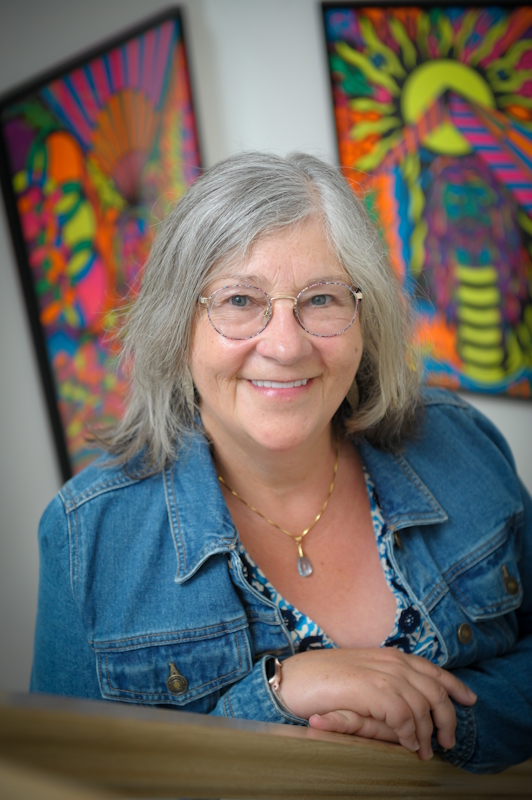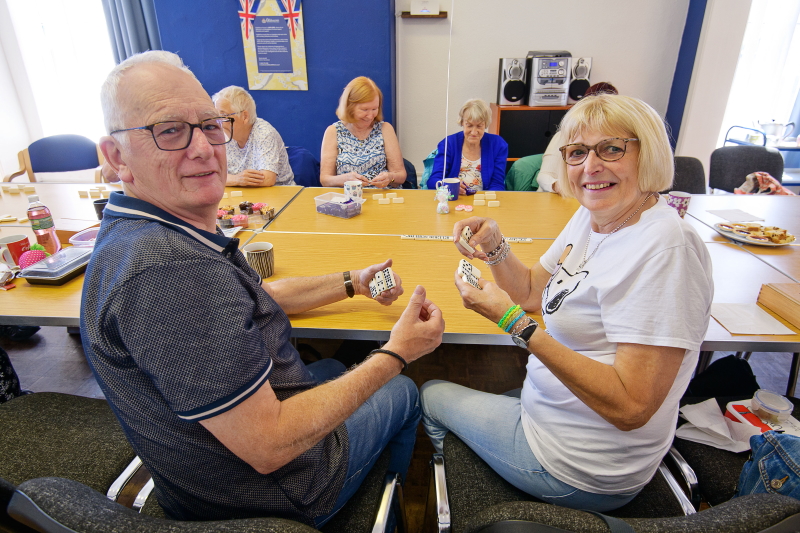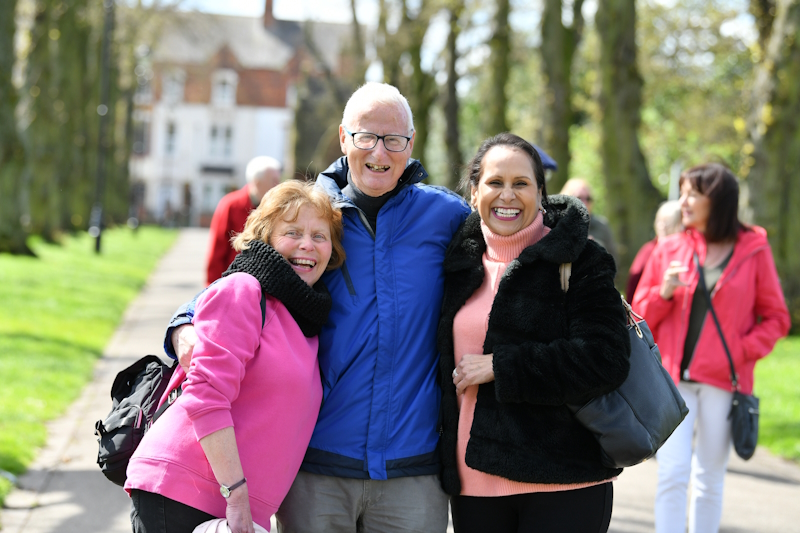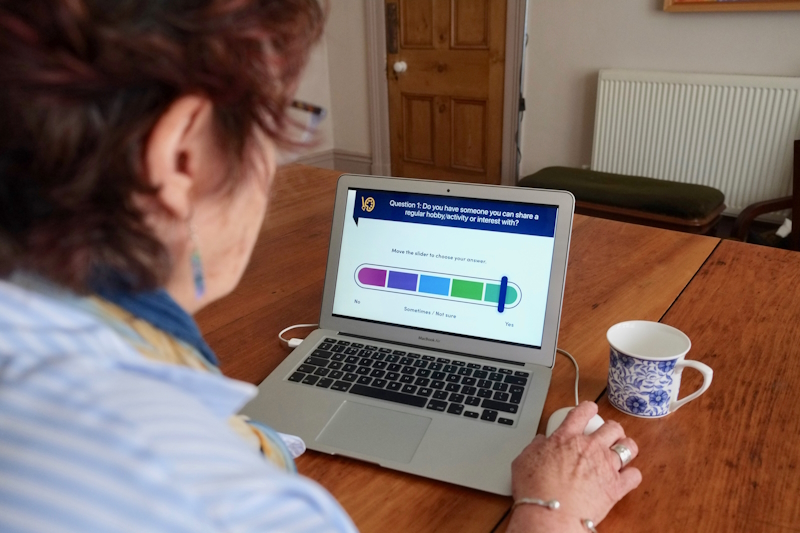Take a Friendship MOT
Updated: 28 Jan 2025
What is a Friendship MOT and why do we need one? Dr Denise Taylor, a psychologist and later life coach, explains why we should pay attention to our friendship needs.
The importance of friendship
Friendships are vital to our social wellbeing and can have a direct impact on our physical and mental wellbeing. In fact, research suggests being socially disconnected is as bad for your health as smoking up to 15 cigarettes a day.
But good social wellbeing is not just a case of meeting a certain quota of people around you, or sticking with friends you’ve known for a long time, it’s about ensuring you have the right people around you to meet your personal needs, right now.
You could have dozens of friends but be missing that one pal to join you at the theatre, or you could be perfectly happy solo, but value the addition of a friend to help you in times of need.
A Friendship MOT helps you to take stock of your network and identify what needs to change to ensure you feel fulfilled and supported by those around you.

Chartered psychologist and later life coach, Dr Denise Taylor.
Friend-slip
As we get older our life moves rapidly through many transitions such as retirement, relocation, losing loved ones, so it’s not surprising to find that you don’t have the same friendship group you once had.
And that’s only natural. Not only do changes in circumstances mean we lose loved ones and close friends, but we no longer spend long days in the workplace surrounded by colleagues and meeting new people, or have the same social appetite as we perhaps did when we were in our 20s.
A social study by the Oddfellows found that almost half of Brits aged over 55 (46 per cent) haven’t made a new significant friend in the last five years, with a further 46 per cent admitting they have lost touch with some.
So, it’s important not to focus on the friends you have lost, but concentrate on how you can fulfil those needs by meeting new friends.
Have confidence
The idea of assessing your friendship group can be scary. It may be that you don’t have many friends and are afraid to lose the ones you have, or you’re afraid you won’t meet any more.
But I can assure you there are plenty more fish in the sea – and it’s more beneficial to you to surround yourself with fewer good people than a high number of people who don’t support you.
There are lots of groups like the Oddfellows, community groups and volunteer groups where there is a ready-made group of friends – you just have to take the first step!
A problem shared
While it’s not one-size-fits-all when it comes to choosing a friendship group, one friendship everyone benefits from is a friend they can confide in and who can offer emotional support.
You know what they say – a problem shared is a problem halved, and that’s true for most of us.
It may be that in taking the Friendship MOT you find that the people you once relied on are no longer available to you. But remember, support doesn’t always have to come from a friend, it could be a family member or a trustworthy organisation that offers befriending services, or a community group that offers wellbeing support.
If you’re in a position to support someone else, perhaps now is the time to make sure that you are available to those around you who might need it? Your friendship group may be full but those around you may not feel as fortunate.

Ode to joy
Another important type of friendship is that person who brings you joy!
Now, they don’t have to be the life and soul of the party – unless that’s what you want – it simply needs to be someone who can bring a smile to your face.
This person doesn’t have to be your best friend, as long as it is someone you can see fairly regularly and enjoy their company.
That’s where the Friendship MOT is vital – by helping you identify these small gaps you can set about doing something about it.
There are many community-based groups that can introduce you to a wide range of people, like the Oddfellows. Try one that runs activities that you enjoy doing, as there will be a better chance of meeting someone you gel with.
Or, if that feels daunting, perhaps you could start by simply smiling at someone in the street. Even the smallest connections can bring joy.
And don’t forget – friendship is a two-way street. If you have any friends that have a negative effect on your positive energy, maybe consider letting these go, or reducing the time you spend with them.
All kinds of kinds
You don’t have to be from the same social background, religion or education to be friends with someone.
In fact, there’s a lot to be said about having friends from a variety of backgrounds and continuing to make friends throughout our lives will encourage this.
As we get older our lifestyles and values can shift, as well as what we need to feel socially fulfilled. New friendships can reinvigorate you. They also present new opportunities and perspectives that can be uplifting and motivational.
Whether you haven’t had time to make new friends, or you don’t know where to start, you won’t regret putting some effort into finding new friends.
There’s also a huge benefit in sharing a hobby with a friend – or finding a friend through a hobby.
Shared activities are more fun with a friend, but also a fantastic gateway to making deeper friendships, quicker, because you already have a strong shared interest.
If you’re stuck for hobby ideas, what interested you in your younger days? Maybe you could give those another go? Or, if you’re stuck for people to try new things with, consider a friendship group, like the Oddfellows, which offers a range of activities.
Alternatively, your passion could be the key to getting more people involved, or helping other people take that step into trying something new. We know that many people feel intimidated when it comes to trying new things, and a bit of friendly encouragement and skill-sharing could make a big difference.

Community focus
As sociable beings, being socially connected within our community is also crucial to our health and wellbeing. We need to feel like we matter, that our presence is acknowledged and that we have purpose.
As we get older and our life goes through transitions, we can often feel like the connections we used to have in family, work or everyday life, are no longer there, or don’t nourish us in the same way. That’s why we need to reassess and reconnect where we can.
Interacting with your local community is a great marker for good social health. Mini exchanges such as smiling at people, or making small talk in the street, counts, as does meeting up with people regularly to enjoy their company.
If you’d like to know more people who live close by, research local interest groups or societies and see what events they have coming up for you to try.
You can get so much enjoyment from becoming more involved in your local community.
If you’re not already, could you consider volunteering in your community and take your social connections to the next level?

Regular check ups
The purpose of the Friendship MOT isn’t to make you feel negative, but to highlight areas so you may address them.
And no matter what the outcome, there are plenty of opportunities to make changes and welcoming new friends into your life.
If you want to take a positive step towards making new friends, or to expand your social circle, look for groups that do things you enjoy, online or in-person. It will increase the chances of you meeting people that you really get on with.
And don’t forget, just like an MOT on your car, a Friendship MOT is something you should do regularly to ensure that your social wellbeing stays in a great condition!
Take a Friendship MOT.
Oddfellows friendship groups
We're always ready to welcome new members to our local Oddfellows friendship groups. You can find your nearest by using our Branch Finder, or use our Events Finder to search for social events and activities happening near to where you live.
Give the Oddfellows a try. There's no obligation to join. Contact us to request your free information pack and local events diary.
Read more advice on making friends and building social confidence in our friendship guides section.
About Dr Denise Taylor
Dr Denise Taylor is a Chartered Psychologist and Career Coach, and an expert in the field of meaningful ageing and life after full time work. She has written six books including Find Work at 50+ and Rethinking Retirement for Positive Ageing: Creating a Meaningful Life After Full-Time Work'. Visit her website at www.denisetaylor.co.uk




